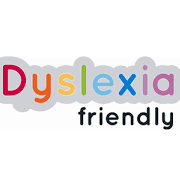Golftyn C.P. School
Dyslexia Friendly School Policy
Our school aims to provide a learning environment, which enables every child to maximise his or her full potential. We aim to recognise and develop pupils’ particular strengths, identify areas of difficulty, and offer sensitive and effective support, which addresses these and thus facilitates maximum access to the curriculum.
The school follows the County Council’s guidelines to meeting the needs of children with dyslexia.
There is no one agreed definition or description of dyslexia. Since 1999 the definition of dyslexia accepted by Flintshire County council has been:
‘Dyslexia is evident when accurate and fluent word reading and/or spelling develops very incompletely or with great difficulty. (BPS definition 2005)
This focuses on literacy learning at the word level and implies that the problem is severe and persistent despite appropriate learning opportunities. It provides the basis of a staged process of assessment through teaching.’
A Dyslexia Friendly School is a school that:
- Values the needs of all learners and displays a positive view towards pupils with dyslexia.
- Is therefore even more effective in meeting the needs of all learners.
- Has high expectations of all pupils.
- Has appropriate levels of provision and resources which are deployed effectively.
- Sees the achievements of all pupils as everybody’s responsibility.
We recognise that in every class there are likely to be a number of pupils who experience dyslexia type difficulties and we aim to:
- Identify specific learning difficulties which are dyslexic in character at an early stage.
- Demonstrate a commitment to meeting the needs of pupils with dyslexic difficulties.
- Work in close partnership with parents.
- Offer appropriate support both within the classroom and in a small group setting, if necessary.
- Develop a bank of resources.
- Further develop staff awareness and knowledge of appropriate methodology, with particular regard to implementation of practical classroom strategies which can benefit all pupils as well as those with dyslexic difficulties.
It is important to realise that dyslexia is a syndrome and cases vary. Most pupils are supported appropriately at School Action. Only the 2% most severely affected need SAP or a Statement. About 10% of pupils experience these unexpected difficulties.
The ‘Dyslexia Friendly Classroom’ works for all pupils. Many of the strategies which are successful with dyslexic pupils also improve the learning of other pupils.
A whole school approach translates policy into practice across the curriculum. With the appropriate support pupils with dyslexia can develop their abilities, gain confidence and achieve their potential.
Identification of Specific Learning Difficulties
All TAs (Lower / Upper foundation Phase) have attended Flintshire Foundation Phase training.
A classroom pack – Dyslexia Friendly Schools – (held in ALNCo’s room) provides a checklist of possible indicators enabling them to identify that a child may be experiencing specific difficulties. If concerned they will then:
- Discuss their concerns with parents and gather any additional information from the parents’ perspective
- Discuss concerns with the ALNCo
- Initiate the Initial Concern Form
- The Learning Support Service Literacy Assessment Pack can be used at Class Action / School Action to identify specific difficulties and strengths – this will then inform the particular approaches needed: e.g.
- Phonic skills assessment
- Keyword lists – poor visual recall of irregular words will impact on reading / independent writing.
- The short assessments will highlight visual / auditory sequential memory difficulties.
- Flintshire LA advise the use of the Literacy Assessment Pack as a tool which schools can use to identify a pupil’s strengths and weaknesses. It is important as an ongoing assessment tool to inform teaching. These are short, specific and individual assessments. Not all assessments will be needed.
- When reviewing a pupil’s progress with parents these short assessments highlight strengths and are able to target a specific difficulty.
Meeting the needs of pupils with Specific Learning Difficulties
Once the nature of the child’s areas of difficulty have been identified, we will:
- Ensure that contact teachers (including supply teachers) are aware of the child’s difficulties, and make appropriate allowances in class. Suggestions for these are outlined on an information sheet (class pack).
- Offer additional provision designed to address the difficulties. Initially the class teacher will devise additional interventions at Class Action and employ teaching strategies using appropriate resources.
- Depending on individual need, small group support at School Action may be provided. It will include a structured, systematic phonic programme using a multi-sensory approach. This will follow the staged response as set down by the Code of Practice.
- Consider the aspects of the working environment using a variety of teaching approaches e.g. phonological awareness, multi-sensory.
- Recognise what supports individual differences and actively make use of all data on pupils to inform intentions.
- Involve the ALNCo and other specialists within school in planning for individual needs.
- Ensure that information about the child’s progress and approaches being adopted is shared with parents, who will be encouraged to support them at home.
- Investigate any visual processing difficulties and suggest an appropriate referral if necessary.
- Accurately monitor progress. Specific targets will be set, standardised reading and spelling tests will be administered and progress reviewed twice yearly.
- Continue to utilise complementary approaches in the teaching of reading and spelling in class eg teaching phonics, encouraging the use of memory aids such as mnemonics for spelling irregular words.
- Encourage the child to understand the nature of their difficulties and to explore ways in which they can utilise their other strengths to develop weaker areas eg by using alternative ways of recording information or planning writing tasks.
- Ensure that additional support is given in test situations, as permitted in the regulations.
- It is considered that there is no single test which will indicate the presence of dyslexia rather a range of tools which can be used over a period of time. Hence the expected procedure (outlined by the LA) is that assessment and review of reading development will be ongoing. The purpose of assessment is to find the most effective way to support a pupil’s learning and will include gaining a clearer view of a pupil’s strengths and difficulties.
Governors
- School governors are kept informed of policy and practice, each term , through the Head Teacher’s Report.
- The designated ALN Governor has a committed approach towards duties as Governor and is kept informed of policy and practice through meetings with the ALNCo and Headteacher.



